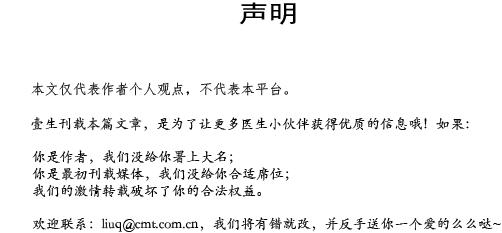查看更多
密码过期或已经不安全,请修改密码
修改密码
壹生身份认证协议书
同意
拒绝

同意
拒绝

同意
不同意并跳过





文章题目:Immune checkpoint inhibitors in EGFR-mutated non-small cell lung cancer: Dusk or Dawn?
发表期刊:J Thorac Oncol 2021.
研究作者:周彩存教授,上海市肺科医院
研究摘要
Although immune checkpoint inhibitors (ICIs) that target programmed cell death 1/programmed cell death ligand-1 (PD-1/PD-L1) axis have significantly shifted the treatment paradigm in advanced non-small cell lung cancer (NSCLC), clinical benefits of these agents are limited in patients with EGFR-mutated NSCLC. Several predictive biomarkers (e.g. PD-L1 expression, tumor mutation burden, etc.), which have been validated in EGFR-wild type NSCLC, however, are not efficacious in EGFR-mutated tumors, suggesting the unique characteristics of tumor microenvironment (TME) of EGFR-mutated NSCLC. Herein, we firstly summarized the clinical evidence on the efficacy of ICIs in patients with EGFR-mutated NSCLC. Then, the cancer immunogram features of EGFR-mutated NSCLC was depicted to visualize the state of cancer-immune system interactions, including tumor foreignness, tumor sensitivity to immune effectors, metabolism, general immune status, immune cell infiltration, cytokines and soluble molecules. We further discussed the potential subpopulations with EGFR mutations that could benefit from ICI treatment. Finally, we put forward future strategies to adequately maximize the efficacy of ICI treatment in patients with EGFR-mutated NSCLC in the upcoming era of combination immunotherapies.
尽管针对程序性细胞死亡1/程序性细胞死亡配体1(PD-1/PD-L1)的免疫检查点抑制剂(ICIS)已经显著改变了晚期非小细胞肺癌(NSCLC)的治疗模式,但这些药物在EGFR突变的NSCLC患者中的临床益处有限。
然而,一些已经在EGFR野生型NSCLC中被证实的预测生物标志物(如PD-L1表达、肿瘤突变负荷等)在EGFR突变的NSCLC中无效,这表明EGFR突变的NSCLC具有独特的肿瘤微环境(TME)特征。
在此,研究者首先总结了ICIS治疗EGFR突变的NSCLC患者的临床证据。然后,描绘EGFR突变的NSCLC的肿瘤免疫图谱特征,以显示肿瘤与免疫系统的相互作用,包括肿瘤异质性、肿瘤对免疫效应的敏感性、代谢、一般免疫状态、免疫细胞浸润、细胞因子和可溶性分子等。我们进一步讨论了可能从ICI治疗中受益的具有EGFR突变的潜在亚群。最后,我们提出了在即将到来的联合免疫治疗时代充分发挥ICI治疗对EGFR突变的非小细胞肺癌患者的疗效的未来策略。
来源:SCI天天读

查看更多